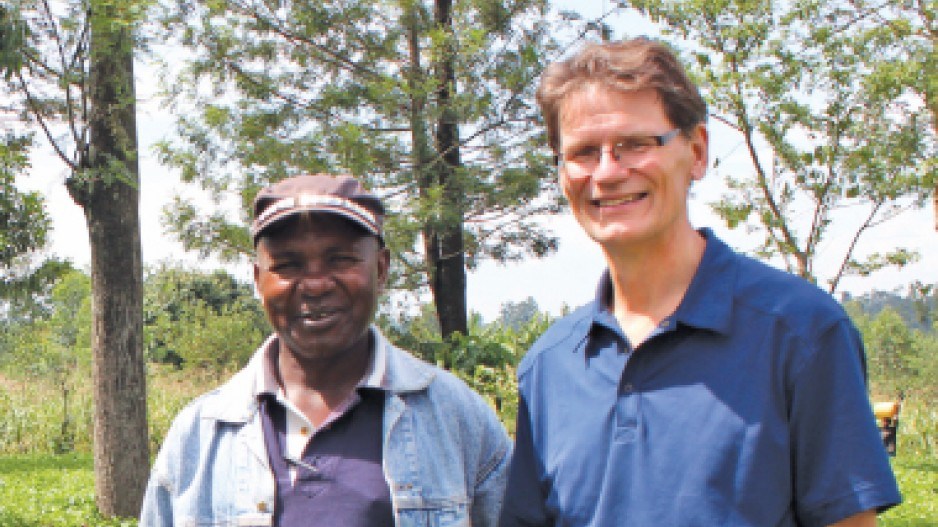JusTea founder Grayson Bain visited Kenya almost two years ago in search of a business idea that would create lasting social change.
There, in a Kenyan market, he met a farmer named Davison who invited Bain – the founder of Rocky Mountain Bicycles – to his home for tea. They quickly toured Davison’s tea plantation, and Bain left Kenya.
But Davison’s warmth and intelligence made an impression, and Bain flew back a week later.
“I still remember, he stood at the entrance to his farm down this little dirt track. He just stood there with his arms open as I approached. ‘Grayson, let’s not talk about tea,’ he said. ‘Let’s talk about our lives and what it’s like to raise a family in Canada.
[And] I want to tell you what it’s like to raise a family here.’”
Over a simple dinner of cassava and tea, Bain learned that Davison was one of more than 500,000 Kenyan farmers who take their raw tea leaves to a central processing factory.
Processing increases the tea leaves’ value exponentially, but farmers cut out by the middleman receive about 1% of that.
“I realized that this is the sort of thing I was looking for,” Bain said.
That was in 2012. After roughly $100,000 of investment – not counting the unpaid hours of about 20 volunteers – Bain returned to Kenya with a small team to build a tea-processing co-op, and JusTea production began in November.
For the first time, Kenyan tea farmers, who traditionally earn less than $2 per day, will process their own tea and reap a fair return for their labour.
“The goal with JusTea is really like the name: it’s all about justice,” Bain said.
Led by locals, the new 200-square-foot facility takes 15 kilograms of wet leaf and hand-produces roughly four kilograms of dry, whole-leaf tea per day – a “tiny, tiny quantity” by Kenyan standards, said Bain.
As the world’s third-largest producer of tea, Kenya produced nearly 370 million kilograms of tea in 2012.
“Though I think we can produce some incredibly beautiful tea that would rival anything in the world, that’s not what we want to be known for,” Bain said.
“We would rather be known for creating a story around tea farmers.”
Bain hopes to enlarge this co-op and possibly move into other agricultural products.
“Agriculturalists are the people that are generally poorest in the world, trying to eke out some existence off the land,” he said. “We want justice for them too.”
People have called him crazy, Bain said. But from a business perspective, the Canadian market looks good.
National tea consumption is expected to jump 40% by 2020, according to the Canadian Food Trends to 2020 report.
As of December 2013, Bain estimated sales revenue from the first month of operations to be anywhere from $50,000 to $75,000.
“JusTea will fit well into the North American market with the drive to get pesticides and chemicals out of tea,” said Brendan Waye, a certified tea sommelier who travelled with Bain to Kenya.
“These leaves have a lot of robustness, a lot of flavour, and for the most part they’re organic.”
Waye added that no pesticides are used, but chemical fertilizer is applied twice a year.
The hand-processing needs to be refined for consistency, but Waye said the teas look promising.
“We could have some of the nicest, hand-crafted, full-bodied teas. There’s just no limit to what we can make.”




